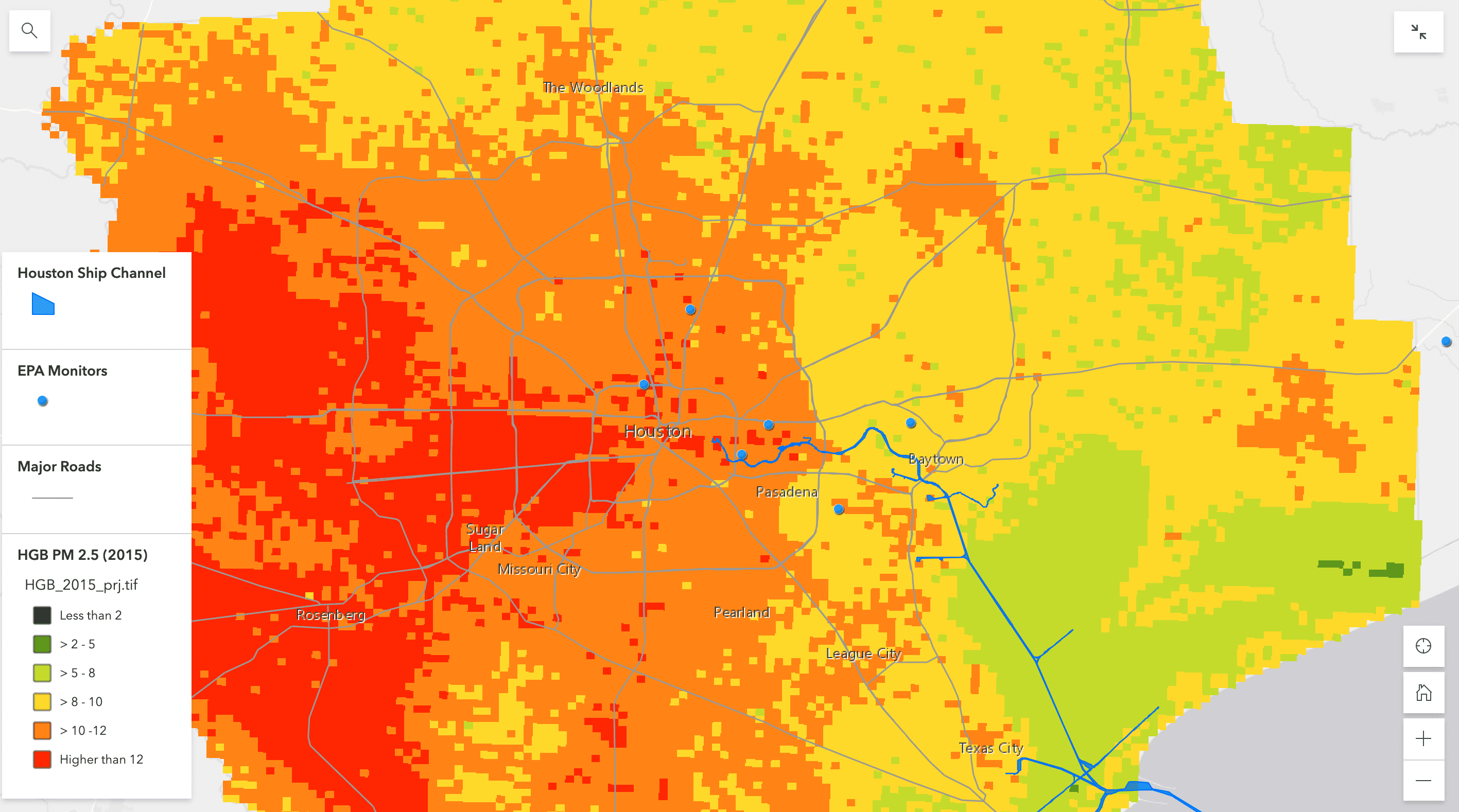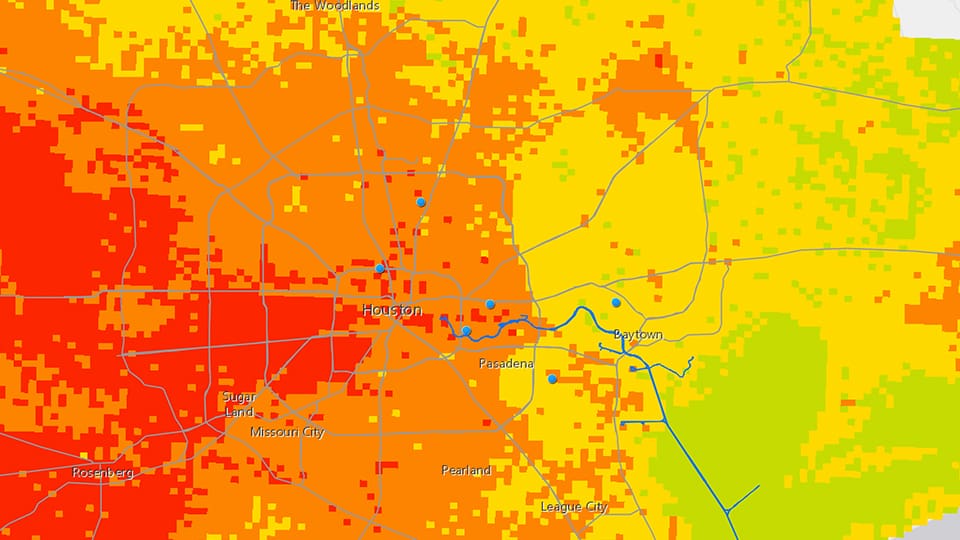The Texas Commission on Environmental Quality (TCEQ) is requesting comments by 5 p.m., Thursday, May 14, on a new 2020 Annual Monitoring Network Plan to address fine particulate matter pollution (PM2.5) in Houston. Your input is critically important.
Exposure to PM2.5 is the largest environmental risk for early death in the U.S. These invisible airborne particles can lodge in our lungs, enter our bloodstream and cause heart attacks, strokes, and lung cancer. When a pregnant woman is exposed, it can harm her infant’s growth and development. In Houston, particle pollution contributed to more than 5,000 early deaths and nearly $50 billion in economic damages in 2015 alone.
While almost all of Houston is exposed to this type of pollution above the level that scientists say is safe, using satellite data from a Harvard analysis, Environmental Defense Fund scientists recently identified a large toxic plume of particulate matter in west Houston. It went undetected for years because TCEQ has not monitored particulate matter in the area.

Image: 2015 PM₂.₅ concentrations (µg/m³). Current PM2.5 monitors are represented by the blue dots. (Source: Toxic air – Houston in on the front lines)
The TCEQ has now proposed, as part of its 2020 Plan, to place a monitor for PM2.5 in the western part of Houston. This is just a small, but important, step closer to establishing a more comprehensive public air monitoring network that will help address regional air pollution. Identifying the high concentrations of PM2.5 will help to advocate for cleaning up its likely sources along the Ship Channel.
However, TCEQ and the US Environmental Protection Agency (EPA) are not required to take action unless a federally certified monitor measures the pollution. And while a new monitor has been proposed, tighter budgets could prevent this from happening despite the need.
Please join us in asking TCEQ to follow through on their commitment to place a new monitor in the Houston region — and encourage them to take further action to keep us safe.
Click below to send an email to TCEQ with an automated message or use the information here to explain in your own words why we need this monitor now.

